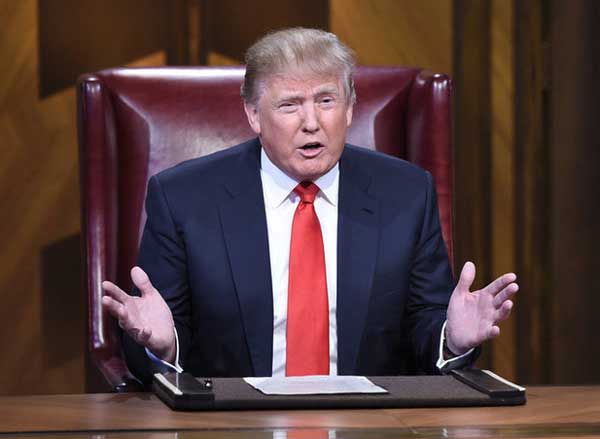 Afghanistan is likely to present the most significant and biggest challenge to US President Trump as China, Russia and Pakistan have new found congruence to muscle into a nation in which the United States has so heavily invested strategically.
Afghanistan is likely to present the most significant and biggest challenge to US President Trump as China, Russia and Pakistan have new found congruence to muscle into a nation in which the United States has so heavily invested strategically.
Let it be said initially that Afghanistan affords the best choice of a geopolitical pressure point against China’s military adventurism in South China Sea conflict escalation and likewise against Russia’s moves in Ukraine and the Baltics. It also would enable to discipline Pakistan’s unrestrained strategic delinquencies against the United States in league with American adversaries. Regrettably, the United States has not been adept at exploiting geopolitical pressure point available to it as part of overall American strategy. President Trump with his acute business sense of outsmarting rivals can hopefully play a smarter US game in Afghanistan and trumping the designs of this nearly emerged China-Russia-Pakistan trilateral on Afghanistan.
United States policy establishment has not been able to discern the underlying motives impelling the sudden revival of an overzealous strategic interest of China and Russia in Afghanistan. It has nothing to do with any vision of peace and stability in Afghanistan. China and Russia have jointly commenced playing a new ‘Great Game’ aimed at the diminution of the United States as the sole Superpower. China and Russia desire to achieve this by prompting two United States exits from geopolitically important regions of Asia, namely, Afghanistan on the Western Flank and the South China Sea conflicts on the Eastern seaboard.
Chinese and Russian perceptions arising from President Trump utterances during the election campaign that under his ward the United States would retreat into isolation have strengthened their resolve to oust the United States from Afghanistan.
In furtherance of this new Great Game, China and Russia have found a willing conspiratorial regional spoiler nation of Pakistan as the cutting edge of their strategy. As a ‘rentier state’ Pakistan is always willing to do hatchet jobs for anyone willing to pay its price, even against the munificence of the United States.
North Korea and South China Sea disputes as potential flashpoints challenging the United States projected in US policy circles pale into insignificance in comparison to the unfolding challenge in Afghanistan where Pakistan has manged to inveigle China and Russia in tow in a concerted effort to side-line the United States in Afghanistan.
China is exploiting the flashpoints of North Korea and the South China Sea conflict escalation a ‘strategic pressure points’ against the United States.
Reflected in my Papers on Afghanistan in the previous decade was the stark reality that the United States has a national security imperative to stay embedded in Afghanistan. This stands necessitated by the basic strategic requirement that a US military presence in Afghanistan facilitates a strong firm base from where the United States can exercise influence over Heartland Asia and the Central Asian Republics.
United States military presence embedded in Afghanistan over the years facilitates American domination of Heartland Asia as it provides a strong firm-base for doing so.
With such a contextual backdrop, it is imperative that US President Trump and his security advisers with long experience with Afghanistan and with Pakistan’s duplicitous undermining of US military presence in this critical nation, need to revise the existing US military blueprint for a strong and credible military presence in Afghanistan for at least two more decades.
The existing US military blueprint envisages the United States maintaining a military presence of 8,500 troops along with another 2,000 troops of NATO centred on the four major airbases of Afghanistan. This needs to be increased to a minimum of at least 5,000 troops at each of these four airbases as ‘Quick Reaction Groups’. Their very existential presence would neutralise disruptive operations by the Taliban instigated by Pakistan and egged on by China and Russia.
President Trump would also need to send political signals on Afghanistan in addition to solidifying US military embedment there.
Heading the list of US political signals would be that the United States would accord no role to the Taliban in the future of Afghanistan. Pakistan has overplayed this ‘Taliban Card’ and again duplicitously leading past US policy establishments that no peace in Afghanistan wold be possible without involving the Taliban. United States futile pursuit of ends in this direction as suggested by Pakistan has brought no dividends to the United States.
The United States cannot wish away the disruptive roles of China, Russia and Pakistan in destabilising Afghanistan over the years. But President Trump can certainly neutralise to a great extent by involving US traditional strong allies in the Gulf monarchies to put brakes on all three of the newly emerged powerbrokers external to Afghanistan.
In conclusion, one needs to stress again what has been stressed by me for over a decade that if the United States can save Afghanistan, then Pakistan would automatically be saved by a transformed Pakistan grasping the futility of Pakistan Army dictation of Pakistan foreign policy and its existing disruptive strategies on Afghanistan. Further, this would entail President Trump slamming hard on Pakistan’s disruptive tools in Afghanistan, namely the Taliban, the Haqqani brothers, and the myriad of Jihadi militias that the Pakistan Army spawns like the Lashkar-e-Toiba and the Jaish-e-Mohammad. United States permissiveness on such Pakistan Army tools in the past underlies United States present tenuous hold on Afghanistan.




